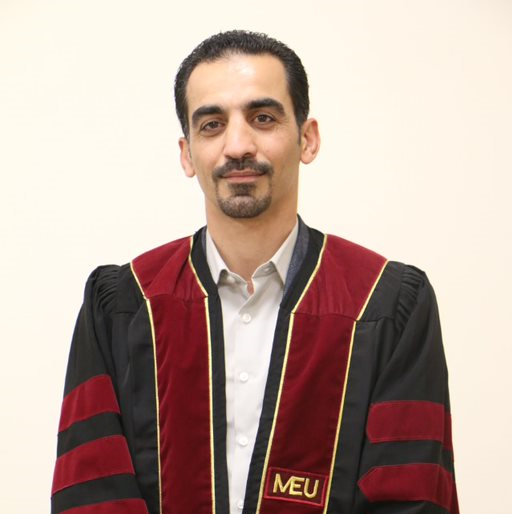Mohammed Nofal
@aou.edu.kw
Assistant Professor of Linguistics, Faculty of Language Studies
Arab Open University
Mohammed Nofal is Assistant Professor of linguistics at the Arab Open University, Kuwait. He received his training in sociolinguistics at Te Herenga Waka Victoria University of Wellington in New Zealand. His research interests include heritage languages, language and identity, language and religion, and corpus linguistics.
EDUCATION
PhD in Linguistics
RESEARCH INTERESTS
Sociolinguistics, Corpus Linguistics
Scopus Publications
Scholar Citations
Scholar h-index
Scholar i10-index
Scopus Publications
Nasaybah Awajan and Mohammed Nofal
Richtmann Publishing
Drawing upon the theory of postcolonialism in tandem with Edward Said’s views on Orientalism, this study explores the East/West binary oppositions in Isabella Hammad’s The Parisian. In this study, we treat the novel as a corpus consisting of 196,000 words and adopt a corpus linguistics (CL) approach to literature by using the corpus software Antconc. The analysis reveals a group of postcolonial binary oppositions related to three categories, namely, characteristics, geography, and characters. The contribution of the current study is twofold. First, the application of CL extends the current line of research of an under researched area by bringing together CL and literary studies. Second, it highlights the East/West binary oppositions in diaspora literature.
 
 Received: 17 April 2023 / Accepted: 20 June 2023 / Published: 5 July 2023
Mohammed Y. Nofal
The Association of Professors of English and Translation at Arab Universities - APETAU
Religion has been a key factor in the linguistic inquiry. Due to its significance in social life, it came to be in an intertwined relationship with language. Much of linguistic research has focused on this relationship in institutionalized settings such as schools, mosques and churches. Yet, the study of the interaction between language use and religion in less or non-institutional settings has not attracted much attention. This study responds to this need by exploring the use of Arabic within an English-language Friday sermon to address a multilingual religious community at an on-campus Muslim prayer site in New Zealand. Drawing upon data from semi-structured interviews with 10 volunteer sermon presenters, the study identifies various motivations and functions of using Arabic in the Friday sermons from the sermon presenters’ perspectives. The overall conclusion is that Arabic language use in the Friday sermons goes beyond the communicative aspect of language.
B. Dweik, Mohammed Nofal and M. Al-Obaidi
The Association of Professors of English and Translation at Arab Universities - APETAU
The Sabean Mandaeans are the only minority group in Iraq ‘without a safe enclave’. They are a religious ethnic group deeply rooted in the history of Mesopotamia whose existence dates back to around 2000 years. This study investigates the status of Mandaic among the Sabean Mandaeans of Baghdad and explores the cultural aspects they preserve. The researchers hypothesise that (1) Mandaic has been abandoned a long time ago, but (2) they have managed to keep alive some elements of their cultural and religious identity. A sample of 115 participants responded to a questionnaire which was preceded by a focus group interviews. Interviews were also undertaken with four participants to verify and enrich the data obtained from the questionnaire. Results show that the Sabean Mandaeans of Baghdad lack proficiency in their heritage language and that Mandaic retains ritual use while Arabic is their first language. However, Mandaeans have preserved many cultural elements, such as religious rituals, social, ethnic and religious festivals and celebrations, and family relations.

